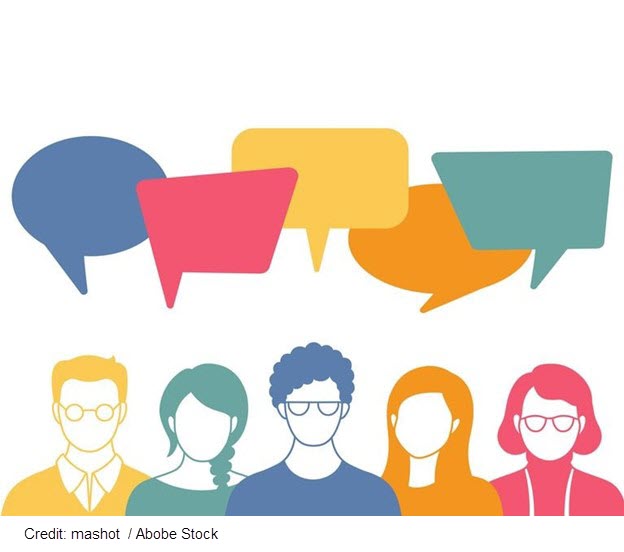The Latest Learnings on eDiscovery from the Chicago Master’s Conference
By Catherine Ostheimer
In a packed room at Seyfarth Shaw’s offices in Chicago, eDiscovery, information governance and privacy experts exchanged points of view and insights at The Master’s Conference last Tuesday.
New ways of thinking about and managing short message/modern data, investigations, and data privacy were raised in a series of panel discussions. Some of the main takeaways from this industry community in the third largest legal market in the U.S. are provided below.
Getting Short Message Review Right
A panel titled “On the cutting edge of short message review” kicked off with a discussion on starting with figuring out what you have in the world of Slack, Teams, text, etc. data. Daniel Kelly of Sidley Austin shared that employees often say that they do not communicate via text for business conversations, but many do. He also shared that it’s important to view messages in a holistic way in the order that each message was delivered, across communications channels, to understand the chain of events and to stay ahead of the narrative related to a case.
Also, in regard to short message review for the financial industry, another speaker mentioned that there are new SEC data delivery standards issued in Jan 2023 that require that If your production will be de-duplicated, you must preserve any unique metadata associated with the duplicate files, make that unique metadata part of your production.
Dealing with eDiscovery Complexity in Investigations
One discussion with a blend of consultants, law firms and corporate speakers identified ways to best manage investigations at a time that they are becoming more and more complex and expensive. Sunil Shenoi of Kirkland Ellis raised that investigation complexity has arisen due to three main factors: 1) investigations going global, requiring the need for experts everywhere, 2) data amount and types exploding in size, and 3) everchanging laws and regulations. To further expand on having to grapple with new data concerns, he remarked that 15 years ago, a team was required to only pull email for an investigation. Now, it’s not so simple. Others on the panel raised the rising tension being felt between maintaining individual’s data privacy rights, while also supporting a company’s right to review evidence related to an investigation.
Michelle Six, Kirkland & Ellis, offered up two tips when it comes to investigation and data. First, to reduce data complexity, lean in on defensible deletion policies. If you don’t need to keep data per a legal hold, retention policy, or regulatory obligation, get rid of it. Also, rely on technology to make the job easier. She believes that lawyers have an ethical obligation to know what technology can help to handle data more efficiently and to put it in place.
Whitney Becker, CBRE Inc., says you should first approach an investigation and determine at the outset whether there is a likelihood it will lead to litigation. In those circumstances, litigation counsel should be pulled in from the start, to offer benefits like only having to cull data once at the review stage.
Leveraging All Data to Tell the Story in eDiscovery
Taking on a common topic that surfaced throughout the day, the topic of an afternoon panel led by Rick Clark of CloudNine was focused on how to manage modern data effectively and efficiently in eDiscovery.
Paul Noonan, United Airlines remarked on the need to have your eDiscovery and data governance strategy linked and commented that there will be both risk and cost ramifications if you do not tie the two efforts together. Jay Carle of Seyfarth Shaw tied this point to how a company handles data coming from employee phones. He said that he sees prosecutors today being encouraged to see how much a company understands the governance of the use of mobile phones, and how Team/Slack chats, texts, etc. are used in business communications. He shared that it’s important to have and enforce policies on use of alternative forms of communication and have this part of a compliance audit schedule.
Jay also commented that it’s important to preserve linked attachments in modern short format communications, as such platforms are now frequently used to transmit and share documents. Ryan Tilot of Gunster shared that with so many ways available to communicate, he finds that custodial interviews are helpful to identifying all communication platforms being used related to a matter. About data authentication, Rick Clark cautioned that screen shots need to be reviewed carefully, as it’s becoming increasingly easy to fake text conversations.
Rick Clark also raised that it’s important to think about short message communications in the review stage as data, not documents, and that it’s easier and less expensive than you think to render this data in near native format to bring the data to life visually to tell the whole story when prepping for an investigation or potential case.
These were only a few summary points from an information-laden day. If you’d like to attend a future Master’s Conference, check out upcoming 2023 dates and locations. Also, if you’re interested in seeing the only solution available currently that can display a holistic view of all communications data in a near native review, contact CloudNine today.
Catherine Ostheimer is VP, Marketing at CloudNine and has been working in the legal technology industry for 8+ years.



